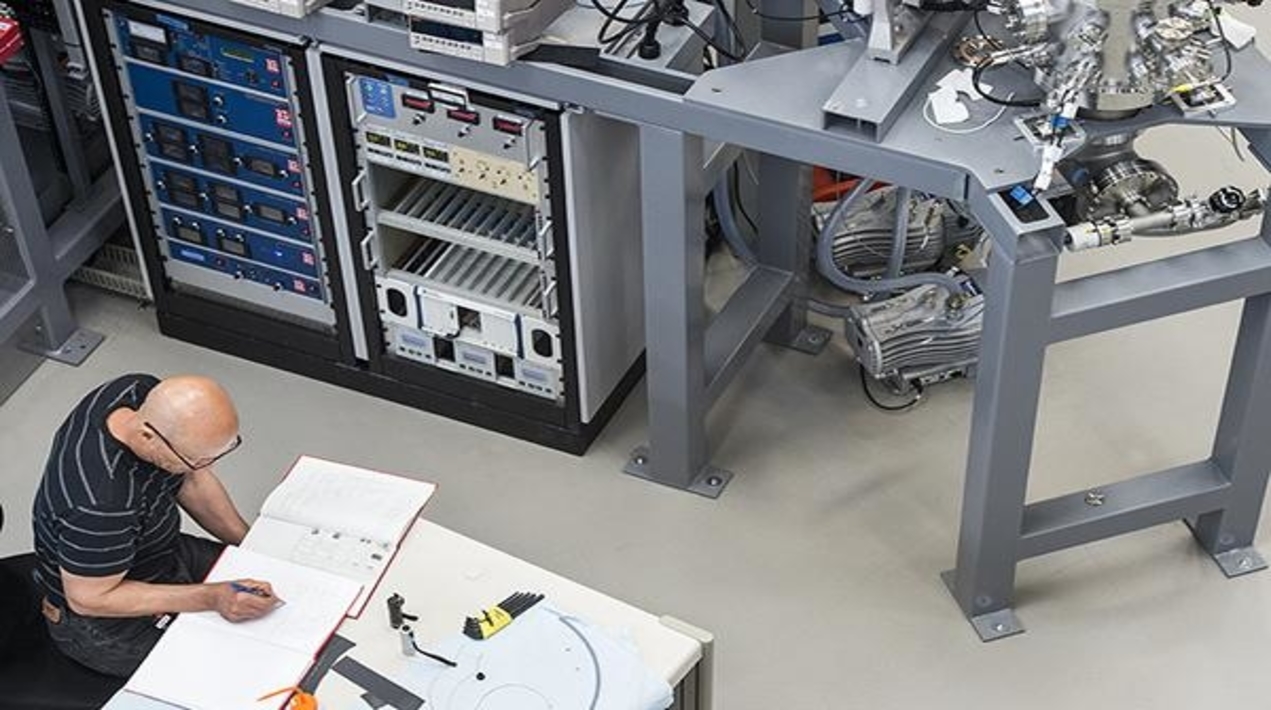
A long-standing collaboration led by biomedical researchers from the University of Sydney has recently achieved success with the recent announcement of an innovative bone implant that significantly reduces rejection and inflammation. The news has generated great interest because of the 1.7 million replacement procedures that are carried out in Australia each year. According to the Australian Orthopaedic Association, as reported by the University of Sydney, approximately 20% of implants will fail at 10 years.
Professor Wojciech Chrzanowski, from the University of Sydney Nano Institute and head of nanomedicine research at the Faculty of Medicine and Health led the international team which included ANSTO scientists.
This week they published a paper in Applied Material Interfaces announcing a safe, organic implant made of biodegradable plastic enriched with gallium and an antimicrobial biomolecule that reduced the implant failure rate to less than one per cent. The gallium was added to the implant using an ion implantation technique on the surface engineering beamline of the Sirius accelerator at ANSTO’s Centre for Accelerator Science.
Prof Mihail Ionescu, now Leader of the Nuclear Fuel Cycle group at ANSTO and instrument scientist Dr Zeljko Pastuovic, undertook the ion implantation, which involved designing gallium targets, establishing the implantation process, and providing evidence that the gallium was successfully inserted into the polymer. He noted that, early in the research, the team discussed prospective elements and chose gallium because it wasn’t in the literature. The ion beam analysis technique Rutherford backscattering confirmed that the gallium was buried between 4 and 40 nanometres below the surface of the polymer in a subsurface layer.
It was noted that ion implantation typically activates the surface of a material chemically, which helped with the introduction of defensin. But in this case, the presence of the gallium was also having a beneficial effect. The implantation of gallium ions altered surface properties, increasing stiffness, roughness, and transition temperature at the surface.
“It is fantastic to see accelerator physicists and biomaterials scientists working together to design materials of the future for this inspiring application,” said Dr Ceri Brenner, Leader, ANSTO Centre for Accelerator Science.
Other collaborating institutions included Martin Luther University Halle-Wittenberg (Germany), Inha University School of Medicine (Korea), and Chubu University (Japan). Prof Mihail Ionescu used elastic recoil detection analysis (ERDA) to assist in an investigation of a new plasma coating developed by scientists at the University of Sydney and international collaborators to decrease bone-implant rejections.
An expert in ion beam analysis techniques at ANSTO’s Centre for Accelerator Science, Ionescu has a long-standing collaboration with Prof Marcella Bilek in the School of Biomedical Engineering at the University of Sydney on the development of biomaterials.
In an acclaimed research development, led by Dr Benham Akhavan of the School of Biomedical Engineering at the University of Sydney, the group described a new organic coating technology that enhances the production of bone-producing cells allowing the implant to bind firmly to bone.
The technique, which is carried out using a beam of accelerated helium ions, is an effective method for measuring hydrogen in thin layers and areas near the surface of a material. Hydrogen is very difficult to detect and measure because it is a small, light element with just a single electron and proton. It has weak bonds that are easily broken.
When working with layers of just a few nanometres, ERDA is an established technique. Helium ions fired at an angle towards the surface of the sample dislodge hydrogen atoms, and a detector can record the energy of the elastically-recoiled hydrogen atoms, which carry the depth information.
A Mylar filter is used to stop and block the scattered helium ions by the sample surface and reduce the noise, making it possible to extract the information carried by the recoiled hydrogen only. The area of interest was the interface of the surface where the polymer film interacted with human tissue directly.
















